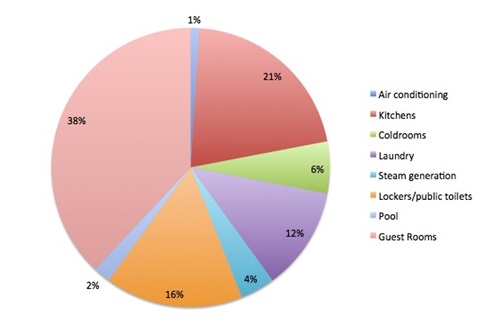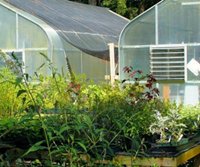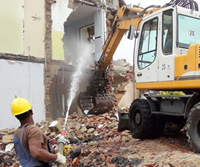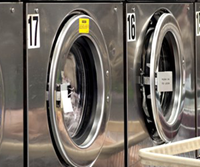Hospitality
Conserving water can not only save you money, it will also provide an important marketing edge in a very competitive industry.
Australia has carefully nurtured its image as being a clean green tourist destination for locals and overseas visitors, and Canberra in particular is a very green-friendly market. Protecting our valuable water resources is an important part of maintaining that competitive advantage.
Save water and protect our environment
- In 1993, the Australian Institute of Hotel Engineers (AIHE) estimated that a typical 300 room hotel uses 225,000 litres of water each day or 750 litres per room. This means a typical 300 room hotel is using around 1.3 Olympic swimming pools full of water each day or 483 Olympic pools each year.
- A commercial sink uses about 40 litres to fill, while a water efficient dishwasher may use as little as 15 litres
Enhance relationships with staff, customers and the local community
- Enhance your organisation's reputation as an attractive environmentally-responsible employer.
- Improve employee pride and motivation by demonstrating a commitment to sustainable service.
- Enhance the image of your business as a responsible member of the community and gain valuable support and recommendations.
- Attract visitors who are increasingly aware of the scarcity of water in Australia and in other countries.
- Save on energy bills by reducing hot water usage.
- Provide the media with a good news story for promotion.
Create a water conservation plan
It's important to know what activities use the most water so you can prepare a plan to reduce water.
Typical water use breakdown in the hospitality sector

Tips to reduce your water use
In guest rooms and public toilets:
- Install plumbing fixtures such as efficient shower heads and taps, or insert flow control devices into existing ones
- Install fixtures that deliver the highest water efficiency rating, eg 4.5/3 dual flush toilets, 3 star water efficient infrared urinal flushes
- Insulate hot water pipes so heat loss is minimised and guests don't need to wait to get hot water to their tap
- Minimise the distance between hot water cylinders and taps (this will save water, hot water bills and the cost of unnecessary piping!)
- Establish a system where guests can choose to keep their towels and bed linen for stays of more than one night and save water on laundering
- Review water use by cleaners to check if water use can be reduced.
In the kitchen:
- Source water efficient or AAA rating dishwashers
- Limit dishwashing and glass washing until you have a full load. If you use a conveyor system check that water turns off when every load is finished
- Specify low flow rates and maximum levels of fluctuation for fixtures
- Choose plumbing fixtures that have built-in flow restricting devices
- If using a garbage disposer for food waste, limit your water use to allow water flow only during operation.
- Avoid thawing foods in cold running water. Alternatives include thawing in the fridge, in a microwave, or in the cooking process
- Clean floors with brooms and mops not hoses
In the laundry
- If you use steam boilers, consider using high pressure during laundry hours and a low pressure when the laundry is closed
- Only use washing machines for full loads
- Check that temperature settings in heating and cooling settings are stable
- Ensure equipment such as boilers, pumps, chillers, and water heaters are used according to actual loads and are shut down when not in use
- Ensure equipment such as boilers, pumps, chillers, and water heaters are properly maintained to prevent water loss due to leaks, steam or condensation
- Install a timer to turn off equipment when not in use.
- Install a water reuse system to divert waste water to garden for irrigation
In the pool
- A 10x15 metre pool will lose about 7cm of surface water to evaporation each week. This amounts to 10,500 litres of water in a week or 546,000 litres in a year! Install pool and spa covers to reduce evaporation equipment with recirculating pumps
- Check pool infrastructure regularly to avoid leaks or other problems
- Check the water level in your pool to avoid unnecessary water loss
In hotel grounds and golf courses
- You can save water in hotel grounds and on golf courses by using mulches and correct watering methods. The garden section has lots of information on how to do this.
Discover ways to save water in more areas of the business sector:
|
Nurseries |
Building industry |
Commercial laundries |



